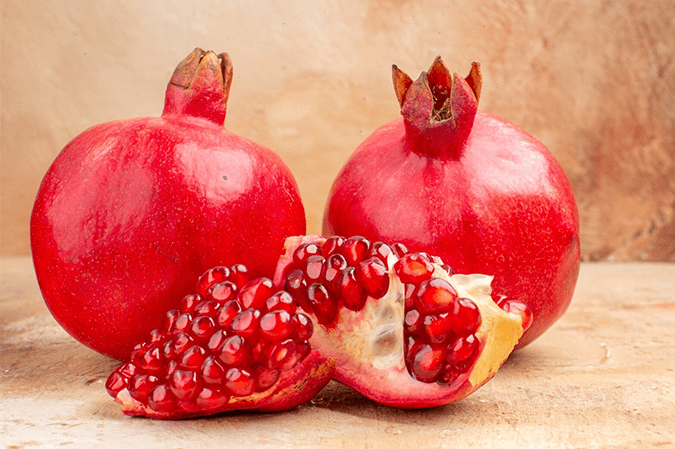Nutritional Value
| Nutrient | Amount per 100g |
| Calories | 83 kcal |
| Protein | 1.7 g |
| Carbohydrates | 18.7 g |
| Sugars | 13.7 g |
| Dietary Fiber | 4.0 g |
| Fat | 1.2 g |
| Vitamin C | 10.2 mg (17% DV) |
| Vitamin K | 16.4 µg (21% DV) |
| Potassium | 236 mg (7% DV) |
| Calcium | 10 mg (1% DV) |
| Magnesium | 12 mg (3% DV) |
Interesting Facts about Pomegranates
- Ancient Symbol: Pomegranates have been symbols of fertility, abundance, and prosperity in many cultures and were even mentioned in ancient texts like the Bible and the Quran.
- Seed Count: Each pomegranate can contain over 600 seeds, known as arils, which are the edible parts of the fruit.
Origin and Health Benefits of Pomegranates
Origin: Pomegranates are believed to have originated in the region extending from modern-day Iran to northern India. They have been cultivated since ancient times throughout the Mediterranean region.
Health Benefits:
- Antioxidant Powerhouse: Rich in antioxidants, particularly punicalagin, and anthocyanins, which help protect cells from damage and reduce inflammation.
- Heart Health: Regular consumption can improve heart health by reducing blood pressure, lowering cholesterol levels, and reducing the risk of heart disease.
Specific Benefits for Organs:
- Heart: Pomegranate juice can improve cardiovascular health by enhancing blood flow and reducing plaque in arteries.
- Skin: The antioxidants help in preventing skin damage from UV rays and pollution, promoting a healthy, glowing complexion.
Sources
- Nutritional values and information about Pomegranates were sourced from the USDA National Nutrient Database.
- Information about The origin and health benefits of pomegranates was compiled from various health and nutrition websites, including Healthline and Medical News Today.



